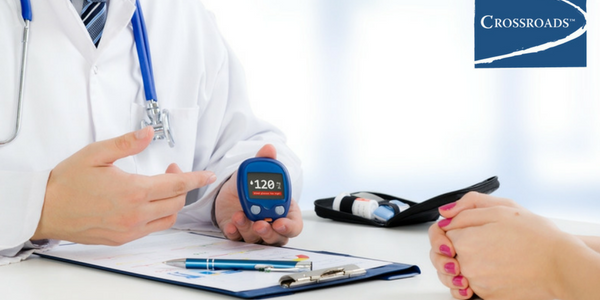It should come as no surprise that drugs and alcohol can be hard on the body and contribute to poorer health and complications with existing health problems. This can be especially true for individuals who have diabetes. Substance use can make it more difficult to effectively manage blood sugar and reduce risk of problems such as hypoglycemia, hyperglycemia, heart disease, eye problems, and kidney disease.
According to the National Institute of Diabetes and Digestive and Kidney Diseases (NIDDK) approximately 30.3 million Americans are living with diabetes. Diabetes is a condition where the pancreas does not produce enough – or any – insulin, which is what the body uses to control blood sugar. Individuals must be constantly aware of what they are eating, drinking, and doing so they can monitor their blood sugar and respond appropriately.
How Substance Use Can Impact Diabetes
Substance use can cause major issues with managing diabetes. For one, alcohol is often filled with sugar and empty carbs – which are broken down into sugar. This can lead to sudden spikes and dips in blood sugar and require more careful monitoring and insulin use. However, while under the influence, it can be harder for individuals to accurately track their blood sugar, and they may miss the signs that something is amiss.
Drugs and alcohol can contribute to many symptoms that are similar to those of hyper or hypoglycemia such as headaches, frequent urination, tiredness, blurry vision, lightheadedness, confusion, trouble concentrating, and poor coordination. Someone may attribute these to their substance use rather than issues with their blood sugar, which can have dangerous consequences.
Plus, substance use can affect appetite, whether that means skipping meals, eating too much, or choosing unhealthy foods. Individuals with diabetes must be very careful about what they eat and count the amount of carbs so they can adjust their insulin dosage. An unstructured and unmanaged diet can throw blood sugar out of whack and make it more difficult to control. Furthermore, certain drugs can decrease the effectiveness of diabetes medications, and when the liver is occupied with processing alcohol, it has a more difficult time releasing insulin to manage blood sugar. It can be a vicious cycle.
Taking Control of Your Health
If you do have diabetes, it is essential to understand the impact of drugs and alcohol on health and blood sugar. Attending treatment for addiction can help you to overcome substance misuse and make your well-being a priority. You can learn how to create a more nutritious diet to not only stabilize your blood sugar, but also boost your mood, ensure you’re getting essential nutrients, and reduce cravings. Learning healthier ways to manage stress, deal with difficult situations, and build positive relationships can allow you to embrace recovery and promote physical, mental, emotional, and social health.
Just like diabetes, addiction is a condition that must be carefully managed. However, it is possible with support from an addiction treatment center like Crossroads. Remember who you wanted to be and take back control of your life and health today.
[cta]Take back control of your health and life by seeking treatment for addiction at Crossroads.[/cta]


















